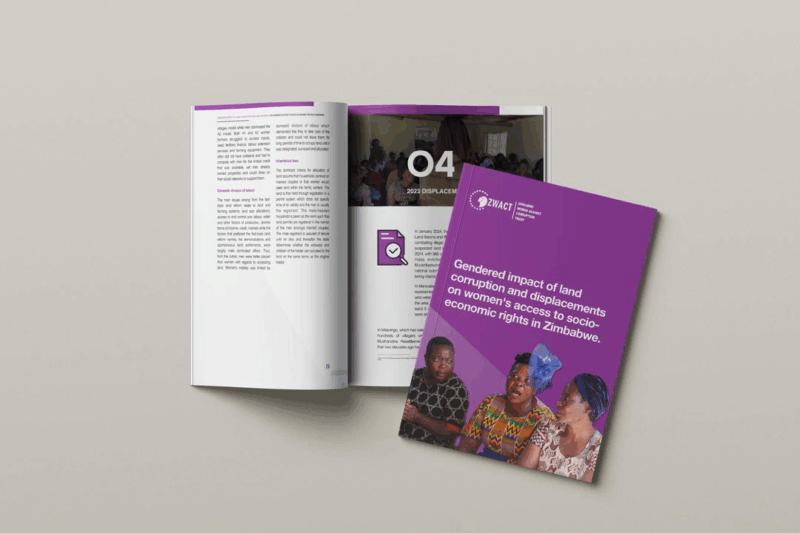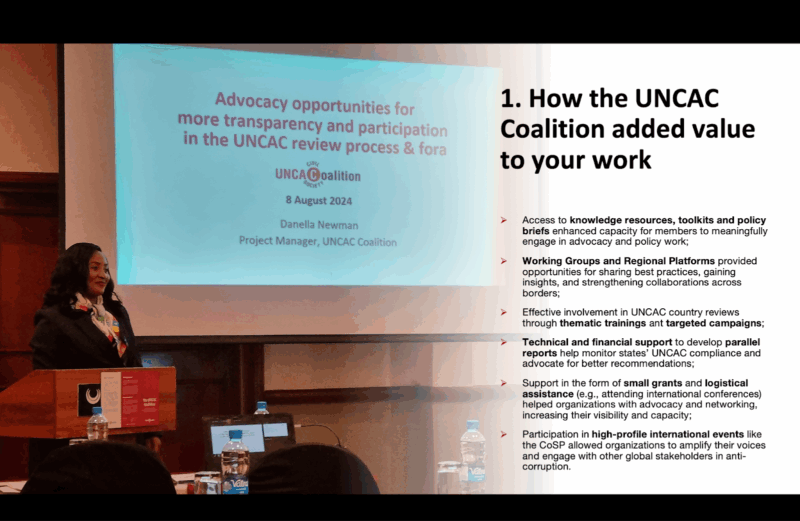19 May 2025 –
Sarah Wesonga
At Sub-Saharan Africa’s 15th Regional Meeting, members reminded us that during an era of silence and repression, storytelling is resistance. Together, we reflected on the findings from the Annual Membership Activity Survey and shared the realities, progress, and challenges faced by our network. This discussion reinforced the need to amplify local African voices in global discourses, and to speak out without fear of reprisals.
According to the CIVICUS Monitor, civic space conditions in Africa remain overwhelmingly restrictive, with 44 out of 49 countries classified as obstructed, repressed, or closed. This shrinking civic space is compounded by significant barriers including legal constraints, declining funding, gross human rights violations and increasing digital surveillance.
These challenges were echoed by our members in Sub-Saharan Africa, who described 2024 as a year marked by restrictions to funding, harassment and intimidation, limited access to information and regressive laws, including SLAPPs, which resulted in diminished participation in national anti-corruption platforms.
And yet, Africa remains a continent of contrasts, where mounting restrictions are met with an even greater resolve. Our members are becoming increasingly innovative, building new alliances, leveraging digital tools, localising global policies and empowering local communities to be at the frontlines in the fight against corruption.
This meeting provided a space to reflect on these findings, giving testament to the grit, resilience and ingenuity of community-led anti-corruption movements thriving despite these adverse stumbling blocks.
Localising global norms: Centering women in Zimbabwe’s anti-corruption movement
Sandra Matendere, Executive Director of Zimbabwe Women Against Corruption Trust (ZWACT), started by sharing candidly what it means to lead anti-corruption efforts in a hostile and underfunded civic space.
Her organisation focuses on the gendered impacts of corruption, especially on women, youth, and persons with disabilities in local communities. In 2024, ZWACT published a groundbreaking report exposing how land-related corruption and forced displacement continue to undermine women’s socio-economic rights in Zimbabwe.

Credit: ZWACT
Like many countries in the region, civic space in Zimbabwe is highly restricted. Their recently amended NGO law severely suppresses civil society and undermines fundamental freedoms, even prompting the European Union to withdraw its 2025 financing for Zimbabwe. For organisations like Sandra’s, this comes against an incredibly under-resourced backdrop, compounded by the burdens of a post-Covid recovery, the aftermath of contentious national elections, and ongoing cutbacks on development funding. Consequently, ZWACT has been forced to be more agile, innovative and strategic in their work.
For instance, despite lacking resources to attend the 2023 Conference of the States Parties (CoSP10) in Atlanta, ZWACT actively engaged with the UNCAC Coalition’s Working Group on Gender, Inclusion and Corruption, and followed updates from the UNCAC Coalition on the outcomes of the Conference. After learning about the landmark resolution on “Addressing the societal impacts of corruption,” they filed Freedom of Information requests to the Zimbabwe Anti-Corruption Commission asking how the resolution would be implemented locally and what it could mean for women and girls.
This prompted the government to proactively engage them in various policy dialogues on gender and corruption alongside the Zimbabwe Gender Commission, the Human Rights Commission, and other national actors. Today, ZWACT is operationalizing an MoU with ZACC to collaborate on civic education, research, and public engagement.
Power on the ground: Community-driven advocacy in Sierra Leone
No one understands the power of civic awareness and grassroot activism better than Pay No Bribe Animators Sierra Leone (PaNBA S/L); a grassroot social accountability group nestled in the vibrant city of Makeni, in Sierra Leone’s Northern Province. What started as a small group of community animators implementing a modest campaign that was supposed to end in 2021, has grown into a bold, people-powered movement, empowering rural communities to rewrite the anti-corruption playbook from the ground up.
Tamba Mondeh, PaNBA’s National Coordinator, explained why PaNBA’s method is simple, but effective.
“We build local ownership by working with those who already have moral authority in communities.”
He elaborated that the organisation actively recruits local elders, traditional leaders, school principals, and “mammy queens” — a respected title for influential women leaders — to become anti-corruption champions. They work together to mentor youth, facilitate civic education, and even run Integrity Clubs schools and local football tournaments to cultivate the next generation of anti-corruption reformers.
“We like to meet rural communities and young people where they are,” Mondeh says. “That’s how we spark community led conversations about justice, integrity and make corruption something everyone can talk about.”

Credit: PaNBA
In 2024, PaNBA was flooded with numerous complaints from parents being asked to pay bribes for their children’s admission into public schools. The organisation leveraged their grassroot network to conduct undercover monitoring, collected evidence, and formally engaged both the Ministry of Basic and Senior Secondary Education and the Anti-Corruption Commission. This resulted in a formal investigation by the Ministry, disciplinary measures were taken against implicated school officials, and new policies requiring all schools to publicly post their admission criteria.
Forging ahead: Expanding civic resilience amidst a shrinking civic space

As the meeting moved into open discussion, members voiced both concern and determination. 2025 brings another wave of national elections across Sub-Saharan Africa and with elections comes new threats: heightened surveillance, smear campaigns, internet shutdowns, and restrictions under the guise of security.
In response, our members are rising to the occasion. They’re building local and international solidarity, sharing strategies, co-developing advocacy tools, and anchoring their local advocacy around international commitments like UNCAC and CoSP resolutions.
This regional meeting was a reminder that the fight against corruption is no longer confined to conference halls and policy documents. It is alive in community centers, school hallways, village councils, and women’s forums. It is shaped by the people most affected by corruption and most determined to end it. And now, through the UNCAC Coalition, these voices are no longer isolated. In line with our mission, we pledge to continue creating spaces for collaboration, solidarity, and push for joint action.



